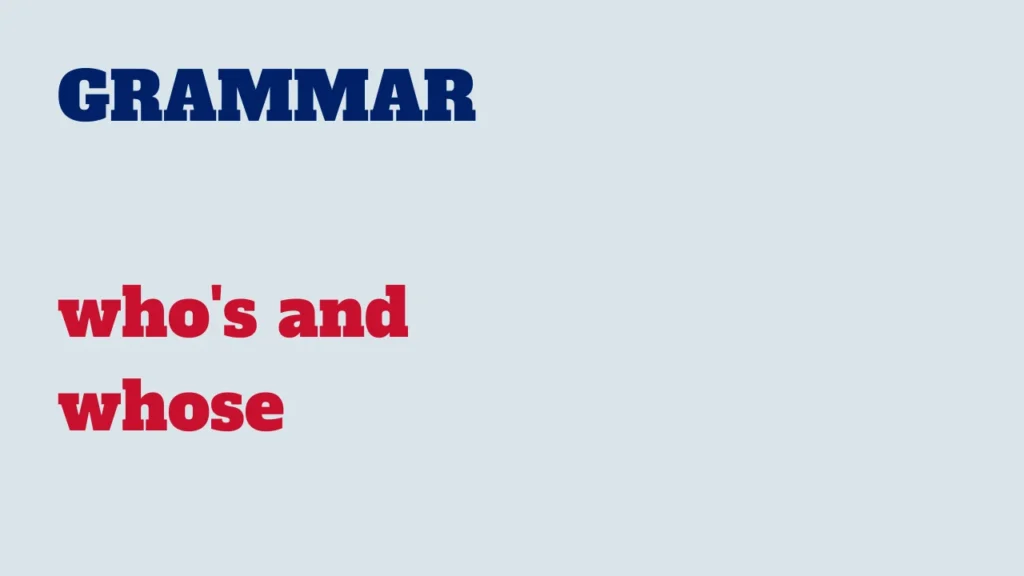The confusion between “who’s” and “whose” is a common issue in English writing. Both words sound the same when spoken, but they serve different grammatical purposes.

Let’s explore the distinctions between “who’s” and “whose.”
“Who’s”:
“Who’s” is a contraction of “who is” or “who has.”
Example:
Who’s coming to the party? (Who is coming to the party?)
Example:
I don’t know who’s written this article. (Who has written this article?)
“Whose”:
“Whose” is a possessive pronoun used to indicate ownership or possession.
Example:
Whose book is this? (To whom does this book belong?)
Example:
The person whose car is parked outside should move it. (The person to whom the car belongs should move it.)
Tips for differentiating who’s and whose:
If you can replace the word with “who is” or “who has,” use “who’s.”
Example:
Who’s going to the concert? (Who is going to the concert?)
Example:
I don’t know who’s made this cake. (I don’t know who has made this cake.)
If you are indicating possession or ownership, use “whose.”
Example:
Whose keys are on the table? (To whom do the keys belong?)
Example:
The student whose project impressed everyone won an award. (The student to whom the project belongs won an award.)
Understanding the distinctions between “who’s” and “whose” will help you use these words correctly in your writing and communication. Practice and familiarity with their respective roles will make it easier to avoid common mistakes. Happy learning!



